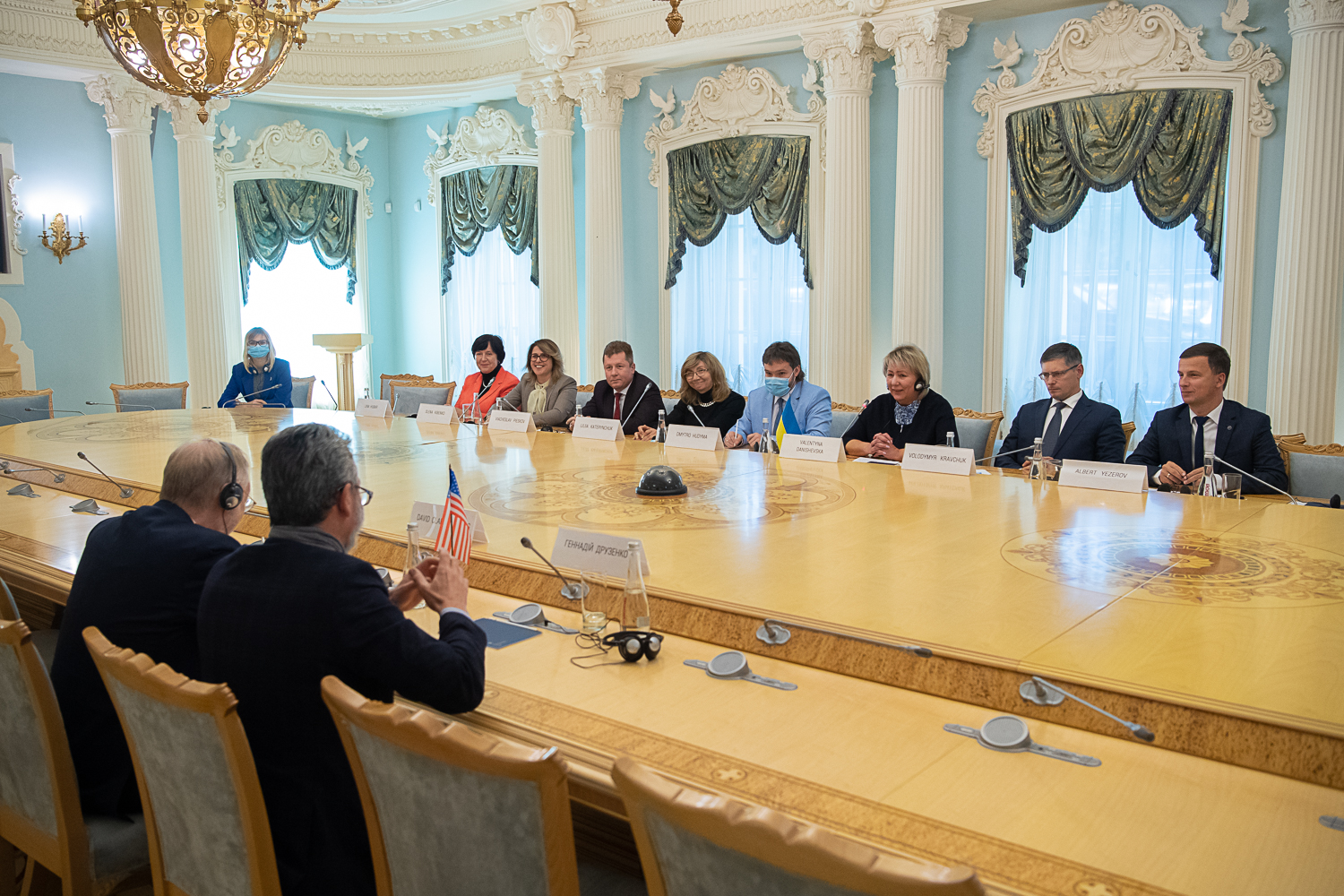Contact center of the Ukrainian Judiciary 044 207-35-46
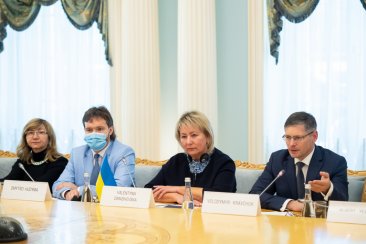
The Supreme Court hosted a meeting with a leading American professor, David Williams, who teaches constitutional law and constitutional design at Indiana University (USA).
David Williams told the story of the formation of the US Supreme Court, the growth of its authority, gaining public confidence and the court's struggle against encroachment on its independence, pressure from government officials.
According to him, in theory the executive, legislative and judicial branches of government are equal, but in practice it often happens that the executive branch tries to be the first among equals, the legislature - the second, and the judiciary becomes the third among equals.
According to the professor, in the Federalist papers Alexander Hamilton called the judiciary the least dangerous branch, because it had "neither a purse nor a sword." But courts have legal principles, ideas, arguments, and they must be the most reliable branch of government for society and have the trust of the people.
According to the professor, courts are extremely important for democratic development, and it takes time to grow the authority of the court. Confidence in the judiciary grows gradually and is based on the moral authority of the courts, i.e. when people see that the courts make decisions in accordance with legal principles and legal grounds.
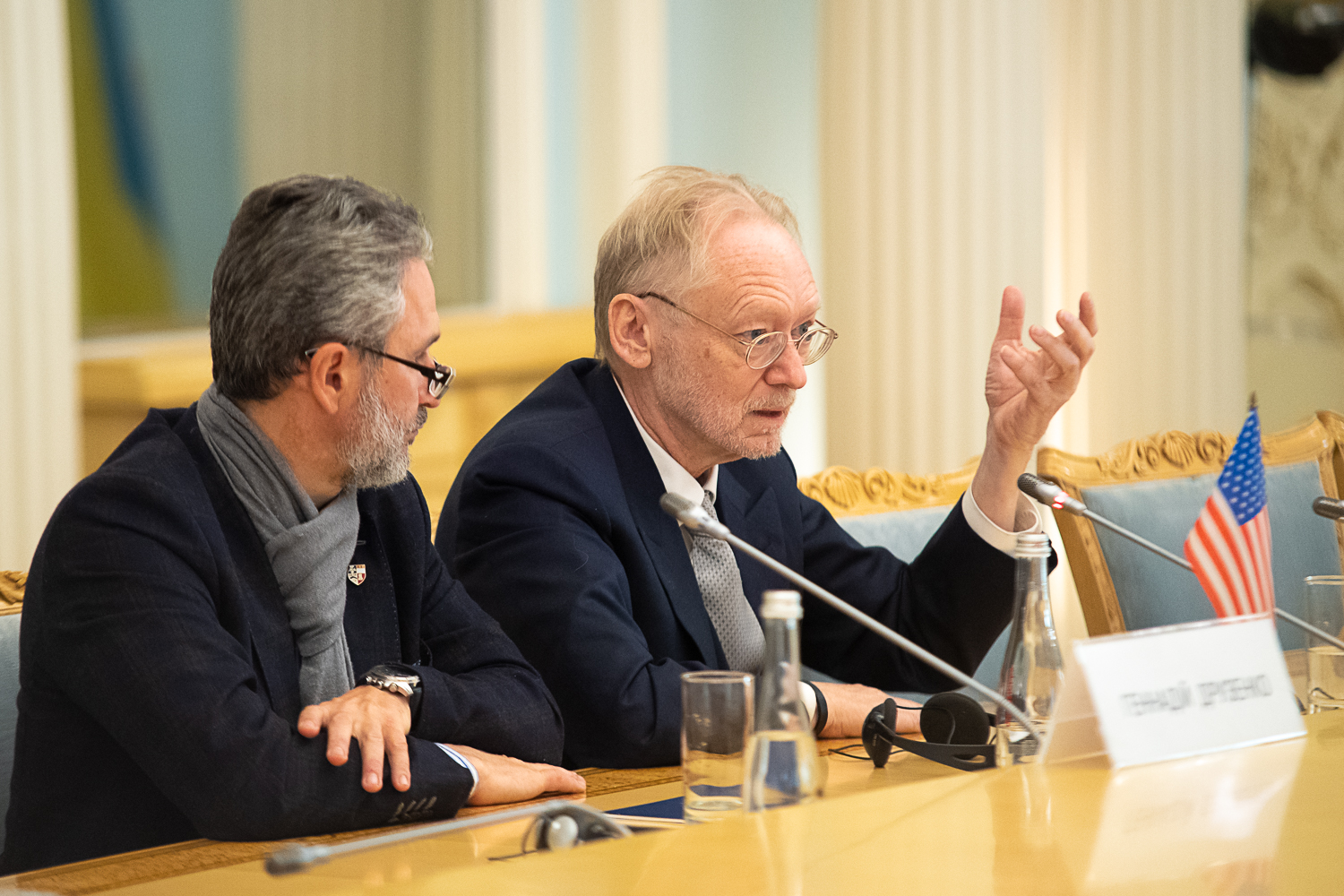
According to David Williams, judges need to be statesmen, strategists and think about how to increase the power of the judiciary in the long run. He believes that there is hope in Ukraine for a future for which courts are important, whose power and authority would develop and be based on legal principles, ideas and arguments.
SC President Valentyna Danishevska thanked David Williams for the meeting, agreeing that the issue of trust in the judiciary is important but not easy. Valentyna Danishevska said that in four years the Supreme Court had considered 300,000 cases and during that time it had been taking measures to improve communication with the public, but the authorities and the public were not yet ready to accept a court decision that did not coincide with their opinion.
"We are aware that some decisions of the Supreme Court will be evaluated over time. The scope of powers of the judiciary allows it to be independent and not to adapt to the demands of those who, so to speak, have a louder voice. The state must understand that it will not be possible to improve the quality of justice without providing proper conditions for its implementation," the President of the Supreme Court stressed.
Valentyna Danishevska added that when there was insufficient funding of the judiciary, the bodies responsible for staffing courts did not work in the state, and almost 40% of judicial positions remained vacant, then in such conditions the judiciary was vulnerable, it was very easy to criticize it.
"The main thing today is not to betray the principles of the rule of law and justice. The Supreme Court must demonstrate resilience and withstand strikes, which cannot be avoided at present. We are trying to do everything so that the society understands the importance of the court in a democratic country, but we cannot fully change the attitude to the judiciary, because it takes time,” the President of the Supreme Court said.
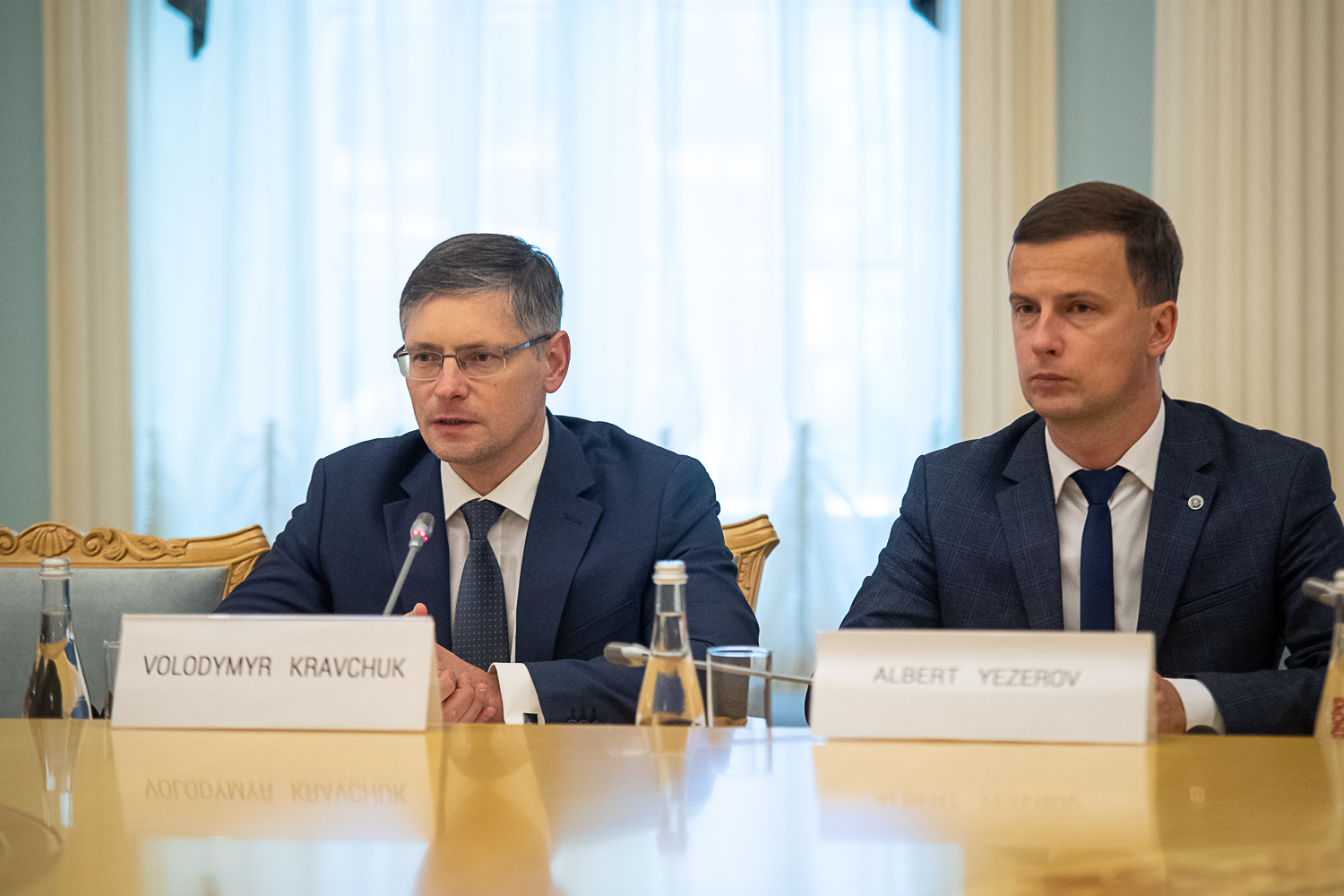
David Williams agreed that judges were in a difficult situation because they could be criticized by everyone but they could criticize no one. At the same time, one should always believe in lasting values in order to overcome political problems.
"The future of humanity must be about dialogue, because we need to talk peacefully about how we look at things differently. Dialogue works only when there is a balance of power. If someone dominates, the first thing that happens is that the effective discussion stops, because less powerful people start telling the stronger what they want to hear,” the professor said.
According to him, both in Ukraine and in the United States, it is often the case that government officials are intolerant of the courts, and the public begins to treat them in the same way because they do not understand the court's findings. Often people think of court decisions from the standpoint of whether they like or dislike the consequences of their adoption. But conclusions about the court's decision must be made on the basis of arguments. Indeed, sometimes the law says something that the society does not like. However, you should always play by legal rules. Because it is the basis for a secure dialogue.
David Williams noted that the courts were in a very difficult situation, as they had to come up with legal conclusions, but the authorities did not like the law and order. He said some US presidents had not liked law and order, and if they could, they would have got rid of it because it had limited their power. People support such presidents, but do not understand that in the long run it will turn against them. “If you give power to the president to fight against the courts, you are giving the authority to decide your fate into the hands of one person,” the speaker emphasized.
In general, in his opinion, the problem of distrust of the court is related to the cultural roots of the people. There is trust in the courts where culture provides the basis for respect for the rule of law. It is a deep understanding of society that the law protects them better than politicians, the court is faithful to the law, so it is a defender of their rights. Even if society does not agree with the specific conclusion of the court, it still recognizes the authority of the court, which by its decisions protects people from arbitrary power and its leaders.
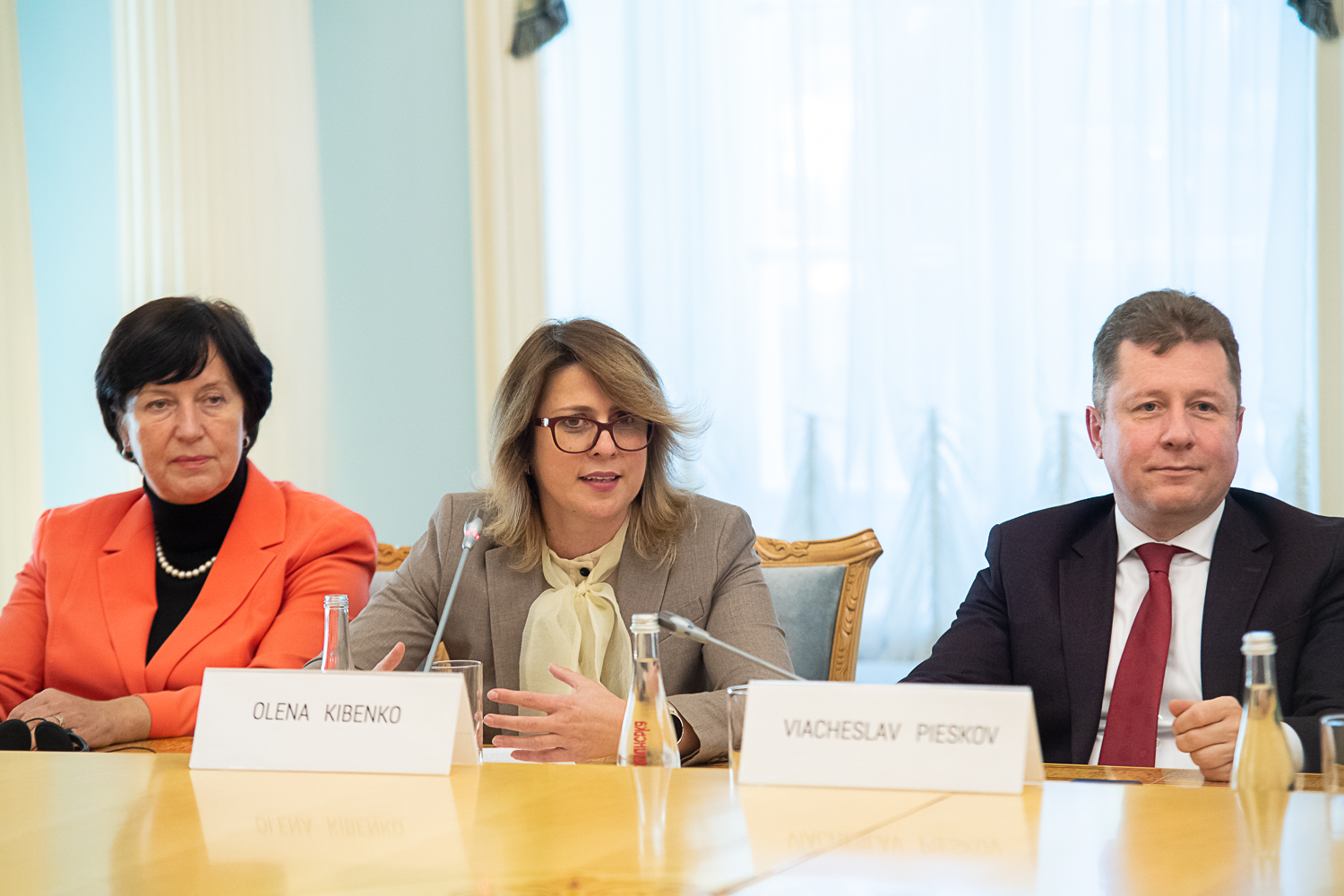
In addition, judges of the Supreme Court and the US guest discussed the situation that had developed with respect for the rule of law. "Nowhere in the world has the struggle for the rule of law been won once and for all. There is no place in the world that is not likely to lose it today. The security of the rule of law in the United States, that is, so to speak, the health of the rule of law, is less than it was 10 years ago," said David Williams.
The speaker also drew attention to the possibility of the court gaining popularity, based on the respect of people for the court who believe that the court will protect their rights. "The only way a court can become popular is not to worry about popularity. After all, if the court takes care of this, it will make a decision not according to legal principles, but in accordance with the preferences of people. The only way for a court to become popular is for people to respect the court for its decisions based on the law. This is possible only when people believe that, in the end, the law and order will protect them better than those in power who care about popularity. In the long run, taking care of the law is safer than trusting charismatic rulers,” said the professor.
David Williams also talked about how the judge-assistant tandem worked in the United States, and shared his own experience as an assistant to Judge Ruth Ginsburg when she had still been a judge of the US Court of Appeals for the District of Columbia.
Asked by Supreme Court judges whether judges in the United States were paying attention to the issue of simplifying the legal language of court decisions, David Williams said that in their country, on the contrary, decisions were becoming longer and more complex, they could only be understood by experienced lawyers. He noted that writing decisions in plain language is a positive trend in Ukraine. At the same time, in his opinion, the category of the case should be taken into account. For example, if there is a case about the electricity market, the decision on it cannot be simple, because it is the regulation of the industry that is complex, technical, and it is impossible to write such a decision in simple plain language and there is no point in it.
In general, David Williams noted that he believed more in Ukraine in terms of progress in writing decisions in simple and clear language than in the United States.
Judges of the Supreme Court Volodymyr Kravchuk, Olena Kibenko, Dmytro Hudyma, Albert Yezerov, Liliia Katerynchuk, Viacheslav Pieskov, Head of the Division of International and Legal Cooperation of the Supreme Court Lina Hubar and Chairman of the Board of the Centre for Constitutional Design Gennadiy Druzenko took part in the meeting.
